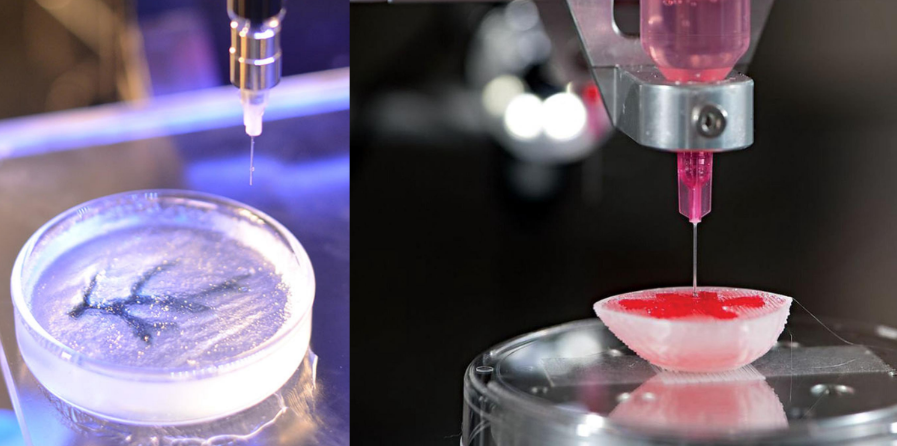Pharma & Healthcare
Fundamentals of Genotyping - Types, Applications, Advancements and Challenges
What is Genotyping?
The pharmaceutical and biotechnology sector has undergone several changes in the recent past to cater to rising genetic disorders, changing consumer expectations, and growing demand for personalized medicine. Genotyping has revolutionized the industry, enabling a more personalized and targeted approach to drug development and patient care.
Genotyping is an emerging laboratory process that determines the genetic makeup of an organism by analyzing its DNA. It enables researchers and healthcare professionals to analyze genetic variations in a genome or at specific locations of interest.
Genotyping techniques have drastically evolved, from classic methods like PCT to cutting-edge technologies like NGS propelling genetics into the frontiers of discovery. These techniques help provide valuable insights into traits, drug responses, disease susceptibility, and population diversity.
There are several methods for genotyping such as PCR-based techniques, microarray analysis, and next-generation sequencing, each with its advantages and disadvantages. PCR techniques such as allele-specific PCR and real-time PCR for genotyping specific DNA sequences or identifying genetic mutations. Microarray analysis through SNP genotyping arrays and comparative genomic hybridization arrays are used for simultaneously examining thousands to millions of genetic markers across the genome, while NGS technologies enable comprehensive and genome-wide genotyping by sequencing DNA fragments and identifying genetic variations across the entire genome.
Genotyping plays a key role in understanding genetics, human health, and biological diversity using different types of genotyping kits including PCR Genotyping Kit, UGT1A1 Genotyping Kit, Speedy NZY Direct Genotyping Kit, and KAPA Mouse Genotyping Kit.
Applications of Genotyping Across Various Sectors:
Biomedical Research - Genotyping is widely used in the biomedical sector to identify various genetic variations associated with diseases. Different genotype testing helps to predict individual responses to medications based on genetic factors, optimizing drug selection, dosing, and minimizing adverse reactions.
Personalized Medicine - Genotyping plays a crucial role in personalized medicine by tailoring medical treatment and interventions to an individual’s genetic makeup. It is used for several applications such as disease risk assessment, drug response prediction, drug dosing optimization, and targeted therapy selection.
Forensic Science - Genotyping is steadily being used in forensic investigations to analyze DNA evidence, identify individuals, and link suspects to crime scenes. It also helps in identifying victims of extremities like natural calamities or terrorist attacks.
Agriculture and Crop Management - The agricultural sector too is rapidly evolving and breeders and farm owners are focused on adopting sustainable agriculture and enhancing crop yield with the use of several genetic technologies including genotyping. Genotyping helps in identifying genetic variations associated with desirable traits including yield, disease resistance, and environmental adaptability. It helps breeders develop crops with enhanced resistance to pathogens, pets, and environmental stresses.
Conservation Biology and Biodiversity- Genotyping plays a key role in conversing biodiversity by assessing genetic diversity, evolutionary relationships among species, and population structure. It also helps in conserving endangered species typically by identifying different species, monitoring population dynamics, and executing breeding and awareness programs to prevent the extension of species.
Challenges in Genotyping:
Though genotyping has emerged as a powerful tool for easing the complexities of genetics, it presents several challenges that need immediate attention. One of the key challenges associated with genotyping is its limited accessibility due to high cost. As these techniques become more advanced, they still involve significant costs that can lower the adoption in small-scale to medium-scale settings.
Genotyping is typically associated with other concerns and complexities related to data interpretation, accuracy, and reproducibility, along with ethical and legal considerations.
Measures to Overcome the Challenges:
To overcome these challenges, companies are heavily investing in research and development activities to improve genotyping technologies, develop new platforms, and enhance data analysis algorithms. They are striving to reduce the costs associated with genotyping to make these techniques more accessible to researchers and healthcare providers.
Leading companies are focused on collaborating with companies, academic institutions, and regulatory agencies to pool resources, facilitate innovation, and accelerate research. In addition, they are adhering to ethical guidelines and regulatory requirements governing the use of genotyping technologies and genetic data.
Follow us on LinkedIn - https://www.linkedin.com/company/xcellent-insights




